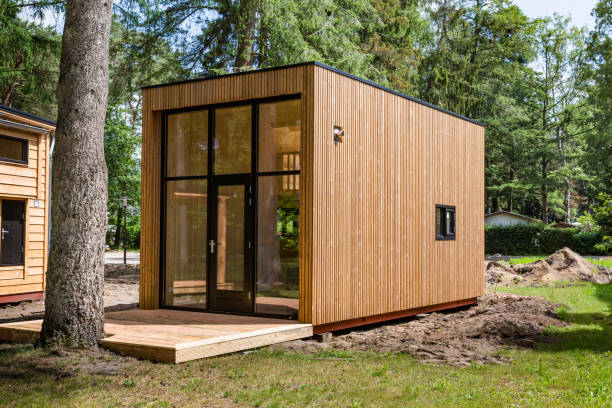The tiny house movement has gained popularity for several reasons, driven by various factors. Some of the key triggers for the tiny house movement include:
- Financial Considerations: Many people are attracted to tiny houses because they offer a more affordable housing option. Building or buying a tiny house generally requires lower upfront costs, and they often have reduced utility expenses and property taxes. It allows individuals to own a home without accumulating significant debt.
- Simplification and Minimalism: The tiny house movement emphasizes a minimalist lifestyle, where people choose to live with fewer possessions and focus on experiences rather than material goods. Tiny houses encourage individuals to declutter and prioritize what truly matters to them.
- Environmental Concerns: Tiny houses have a smaller ecological footprint compared to traditional houses, as they require fewer building materials and energy to maintain. They promote sustainable living and reduce overall resource consumption.
- Mobility and Flexibility: Tiny houses are often built on trailers, making them portable and allowing owners to move their homes to different locations if needed. This mobility provides a sense of freedom and the ability to change surroundings without leaving home behind.
- Customization and Creativity: Tiny houses offer an opportunity for individuals to design and build a unique living space that suits their needs and lifestyle. This customization aspect allows for creative architectural solutions in compact spaces.
- Housing Affordability and Accessibility: With rising housing costs in many regions, tiny houses present an alternative housing option for people who struggle to afford traditional homes. They can provide affordable housing solutions in urban and rural areas.
- Debt Reduction and Financial Freedom: Many people are attracted to tiny houses as a means to reduce or eliminate mortgage debt. Living debt-free or with minimal financial obligations can lead to increased financial freedom and reduced stress.
- Desire for Off-Grid Living: Some individuals seek independence from utility companies and want to generate their own energy, harvest rainwater, or use composting toilets. Tiny houses lend themselves well to off-grid living due to their smaller energy and water needs.
- Changing Lifestyles: The way people live and work has evolved, with more individuals working remotely or desiring flexible living arrangements. Tiny houses offer a compact yet functional space that suits modern lifestyles.
- Back-to-Basics and Self-Sufficiency: The tiny house movement aligns with a growing interest in self-sufficiency and a return to simpler living. Many tiny house enthusiasts appreciate the challenge of living with fewer resources and embracing a more hands-on lifestyle.
Overall, the tiny house movement represents a response to various societal, economic, and environmental factors, reflecting a desire for more intentional and sustainable living.

